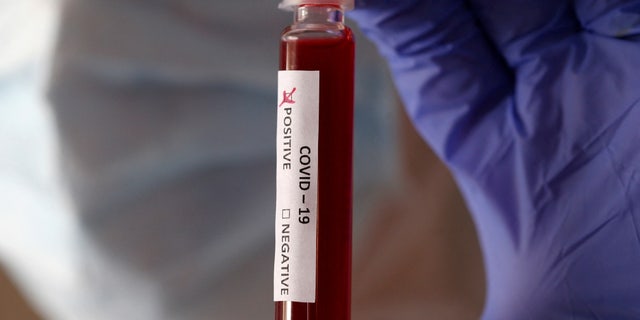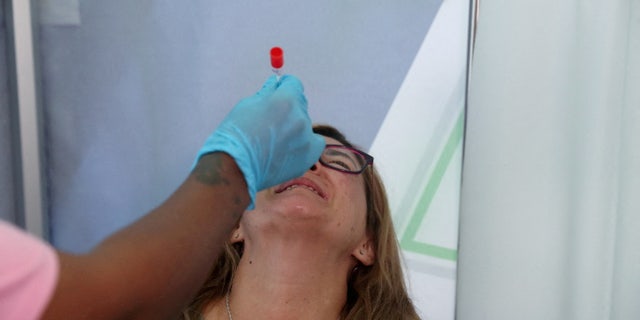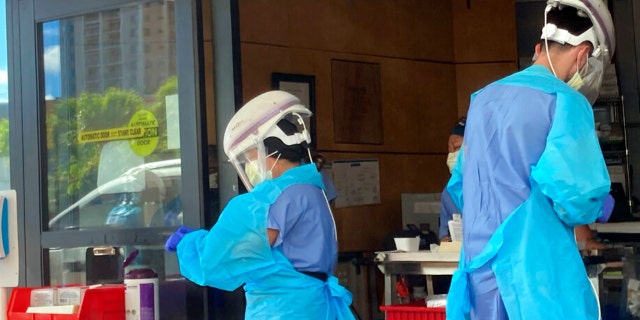
At-home COVID tests will help us live ‘sustainably’ with coronavirus: Infectious disease expert
Infectious disease expert Dr. Amesh Adalja joins ‘Cavuto Live’ to provide insight into the coronavirus pandemic.
Three dozen healthy young adults were infected with COVID-19 in a controlled setting to examine the full course of the virus in the world’s first “human challenge study,” conducted by the Imperial College of London.
The participants, who were unvaccinated and all between the ages of 18 and 30, were given the original SARS-CoV-2 strain through drops in the nose at the Royal Free Hospital in London, England.

Fake blood is seen in test tubes labelled with the coronavirus (COVID-19) in this illustration taken March 17, 2020.
(Reuters/Dado Ruvic/Illustration/File Photo)
Two of the participants were excluded from the study after contracting COVID-19 in between the screening and the experiment.
Of the 34 participants who were exposed, only 18 became infected. They were given the “lowest possible dose of virus found to cause infection, roughly equivalent to the amount found in a single droplet of nasal fluid when participants were at their most infectious.”
Sixteen of the participants developed mild-to-moderate symptoms and the average incubation period was just 42 hours.

A healthcare worker collects a swab for a PCR test against COVID-19.
(Reuters/ Sumaya Hisham/File Photo)
No serious adverse reactions were recorded in the study.
Each participant’s viral load was checked twice a day using nasal swabs. Notably, there was no correlation between an individual’s viral load and symptoms, with a high viral load found even during asymptomatic infection.
Viral loads peaked at five days on average, but levels of infectious virus were still detected up to nine days after inoculation.

Hospital workers process COVID-19 tests at a hospital.
(AP Photo/Caleb Jones)
The researchers are hopeful that the study provides a “plug and play” platform to study other variants and drugs.
“The trial has already provided some fascinating new insights into SARS-CoV2 infection, but perhaps its greatest contribution is to open up a new way to study the infection and the immune responses to it in great detail and help test new vaccines and treatments,” Dr. Sir Michael Jacobs, consultant in infectious diseases at the Royal Free London, said in a statement.
Researchers plan to conduct a human challenge study using the delta variant of COVID-19 next.
Source: Read Full Article